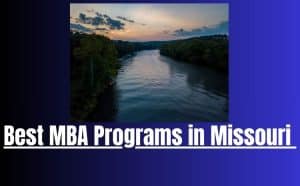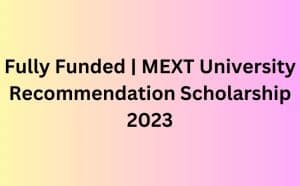
Executive MBA Programs: Everyone wants to go up the cooperate ladder and in a highly competitive business landscape, professionals aspire to enhance their leadership skills and advance their careers to new heights.
One effective way to achieve these goals is by pursuing an Executive MBA (EMBA) program. Designed for experienced professionals, EMBA programs offer a unique blend of business education, networking opportunities, and leadership development, empowering individuals to take on senior management roles.
In this article, we will explore the world of Executive MBA programs, their benefits, program structure, admission process, top programs, challenges, and tips for success.
What is an Executive MBA?
An Executive MBA is a specialized graduate-level business program specifically designed for working professionals with substantial work experience.
It is distinct from a traditional MBA as it focuses on the strategic aspects of management and leadership rather than foundational business knowledge.
Executive MBA programs cater to mid-career professionals seeking to expand their skill set, broaden their business perspectives, and accelerate their career progression.
Benefits of an Executive MBA
Enhanced Leadership Skills: An Executive MBA equips professionals with advanced leadership and managerial capabilities, enabling them to tackle complex business challenges with confidence.
- Network Expansion: EMBA programs provide a platform for professionals to connect with like-minded individuals, industry experts, and influential alumni, fostering valuable relationships that can propel their careers forward.
- Global Perspective: Many EMBA programs incorporate international modules or offer opportunities for studying abroad, allowing participants to gain a global perspective and develop a deeper understanding of diverse markets and cultures.
- Career Advancement: Graduates of EMBA programs often witness significant career growth, with increased chances of securing executive-level positions or successfully transitioning to new industries or functional areas.
- Knowledge Application: EMBA participants can immediately apply their newfound knowledge and skills to real-world business scenarios, creating tangible value for their organizations.
Eligibility Criteria
To be eligible for an Executive MBA program, candidates typically need:
- A minimum number of years of work experience (ranging from 5 to 10 years).
- A bachelor’s degree or equivalent.
- Demonstrated leadership potential.
- Strong academic and professional track record.
Each program may have specific eligibility requirements, so it is crucial to review the prerequisites of the target EMBA programs.
Program Structure
EMBA programs are designed to accommodate the busy schedules of working professionals. They usually follow a part-time format, allowing participants to continue their full-time employment while pursuing their studies.
The program duration varies across institutions, typically spanning from 18 months to 2 years. The curriculum is carefully crafted to cover essential business disciplines such as finance, marketing, strategy, and organizational behavior, with a focus on practical applications and leadership development.
Specializations Offered
EMBA programs often offer a range of specializations to cater to the diverse interests and career goals of participants. Some common specializations include:
- Strategic Leadership: Focusing on advanced leadership theories, change management, and strategic decision-making.
- Entrepreneurship and Innovation: Equipping participants with the knowledge and skills to start and grow their own ventures or drive innovation within existing organizations.
- Global Business: Providing insights into the complexities of international markets, global strategies, and cross-cultural management.
- Finance and Investment: Concentrating on financial analysis, investment strategies, risk management, and mergers and acquisitions.
Admission Process
The admission process for Executive MBA programs typically involves the following steps
- Application Submission: Candidates are required to submit an online application, which includes personal information, academic transcripts, resume, recommendation letters, and essays detailing their goals, aspirations, and reasons for pursuing an EMBA.
- Interview: Shortlisted candidates are invited for an interview, either in person or via video conferencing. The interview assesses their leadership potential, communication skills, and alignment with the program’s values and objectives.
- Standardized Tests: Some EMBA programs may require candidates to submit standardized test scores, such as the Graduate Management Admission Test (GMAT) or the Executive Assessment (EA). However, work experience and professional achievements often carry significant weight in the selection process.
- Admission Decision: Once the evaluation process is complete, candidates receive an admission decision, typically within a few weeks. Successful candidates are offered a place in the EMBA program and provided with further instructions regarding enrollment.
Top Executive MBA Programs
Several renowned institutions around the world offer exceptional Executive MBA programs. Some of the top programs, recognized for their academic rigor, distinguished faculty, and alumni networks, include:
- Harvard Business School – Executive MBA
- Wharton School, University of Pennsylvania – Executive MBA
- INSEAD – Global Executive MBA
- London Business School – Executive MBA
- Kellogg School of Management, Northwestern University – Executive MBA
It is important to conduct thorough research and consider factors such as program curriculum, faculty expertise, alumni success, and global rankings while choosing the most suitable EMBA program.
Alumni Network
One of the significant advantages of pursuing an Executive MBA is the access to a vast and influential alumni network. These networks often span across industries and geographies, providing valuable connections and opportunities for collaboration, mentorship, and career advancement.
Alumni associations organize networking events, guest speaker sessions, and exclusive job postings, allowing graduates to stay connected and leverage their network throughout their professional journey.
Return on Investment
The decision to pursue an Executive MBA involves a significant investment of time, effort, and financial resources.
However, the returns on this investment can be substantial. The increased leadership capabilities, expanded professional network, career advancement opportunities, and higher earning potential often justify the cost of the program.
Many EMBA graduates experience a positive return on investment in a relatively short period, making it a worthwhile investment in their future.
Career Opportunities
When you complete an Executive MBA program, you have unlocked a wide range of career opportunities. An Executive MBA graduate can handle leadership roles such as Chief Executive Officer (CEO), Chief Financial Officer (CFO), Chief Operating Officer (COO), or Vice President (VP) in various areas.
Additionally, they can explore entrepreneurial endeavors, venture into consulting, or pursue board-level positions in both profit and non-profit organizations.
Challenges Faced
While pursuing an Executive MBA, professionals may encounter several challenges, including:
- Time Management: Balancing work, personal life, and academic commitments can be demanding, requiring effective time management skills and prioritization.
- Workload and Intensity: EMBA programs are rigorous, with demanding coursework and assignments. Participants must be prepared to dedicate substantial time and effort to succeed academically.
- Collaboration Across Diverse Teams: EMBA programs often emphasize teamwork and collaboration, requiring participants to work effectively with individuals from diverse professional backgrounds and cultures.
- Career Transition: Some professionals pursue an Executive MBA to facilitate a career transition. However, transitioning to a new industry or role can be challenging, requiring thorough planning, networking, and skill development.
Tips for Successful Executive MBA program
To make the most of an Executive MBA program, consider the following tips:
- Set Clear Goals: Define your career objectives and aspirations before starting the program. This clarity will help you tailor your coursework, networking, and extracurricular activities accordingly.
- Engage Actively: Actively participate in class discussions, group projects, and networking events to maximize your learning experience and build strong relationships with peers and faculty.
- Leverage Your Network: Take full advantage of the alumni network and connections offered by the program. Seek mentorship, attend networking events, and engage in meaningful conversations with industry experts and successful alumni.
- Balance Workload: Develop effective time management skills to balance your professional, personal, and academic commitments. Prioritize tasks, delegate when necessary, and maintain a healthy work-life-study balance.
- Apply Learnings Immediately: Seek opportunities to apply the knowledge and skills acquired during the program to real-life business challenges. This hands-on application will reinforce your learning and demonstrate the value you bring to your organization.
FAQs on Executive MBA Programs
1. Is Work Experience Mandatory for admission to an Executive MBA program?
Yes, most Executive MBA programs require a minimum number of years of work experience, usually ranging from 5 to 10 years. This requirement ensures that participants bring real-world insights and perspectives to the classroom.
2. Can I Pursue an Executive MBA while working full-time?
Yes, Executive MBA programs are specifically designed for working professionals. They typically follow a part-time format, allowing participants to continue their full-time employment while pursuing their studies.
3. How can an Executive MBA benefit my career?
An Executive MBA can benefit your career by enhancing your leadership skills, expanding your professional network, providing a global perspective, opening up career advancement opportunities, and enabling immediate application of knowledge to real-world business scenarios.
4. Are Executive MBA programs only for individuals in senior management positions?
No, while Executive MBA programs cater to individuals with substantial work experience, they are not limited to those in senior management positions. These programs are suitable for mid-career professionals aiming to accelerate their career progression and broaden their business perspectives.
Conclusion on Executive MBA Programs
Executive MBA programs serve as catalysts for professional growth, empowering experienced professionals to expand their leadership capabilities, broaden their business acumen, and unlock new career opportunities.
By choosing a reputable EMBA program that aligns with their goals, professionals can embark on a transformative journey that enhances their strategic thinking, networks, and overall marketability.
With dedication, perseverance, and a focus on practical application, professionals can leverage their EMBA experience to make a lasting impact in the corporate world and achieve their long-term career aspirations.
Schools with the Best Executive MBA Programs in the US
————————————————————-
———————————————————-





